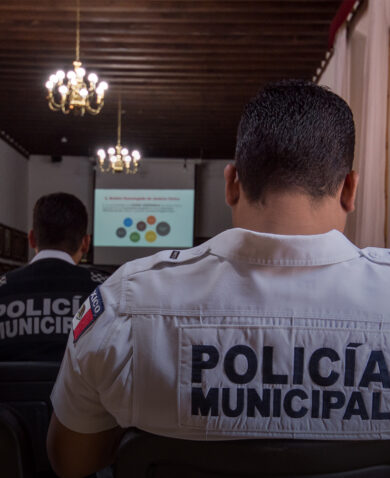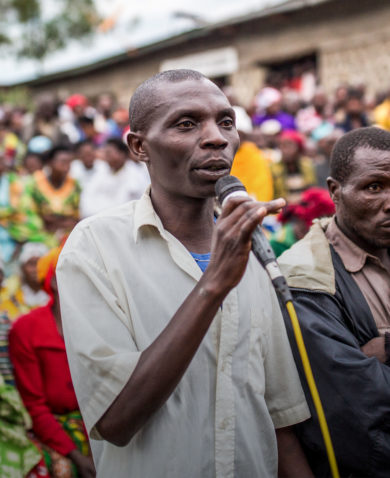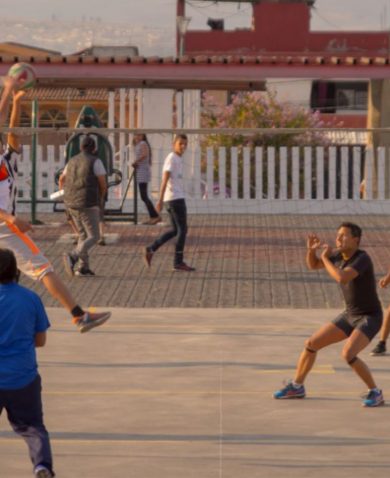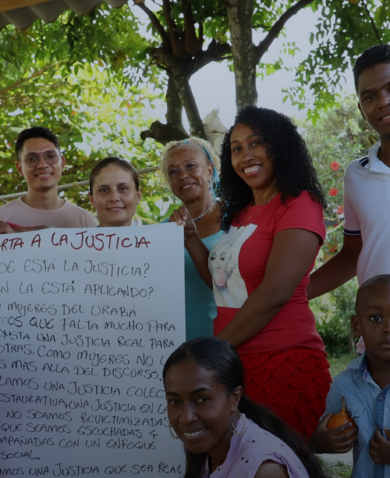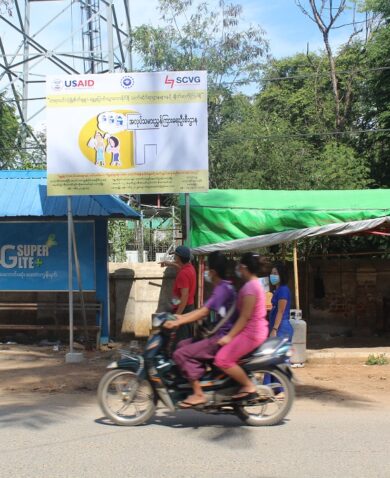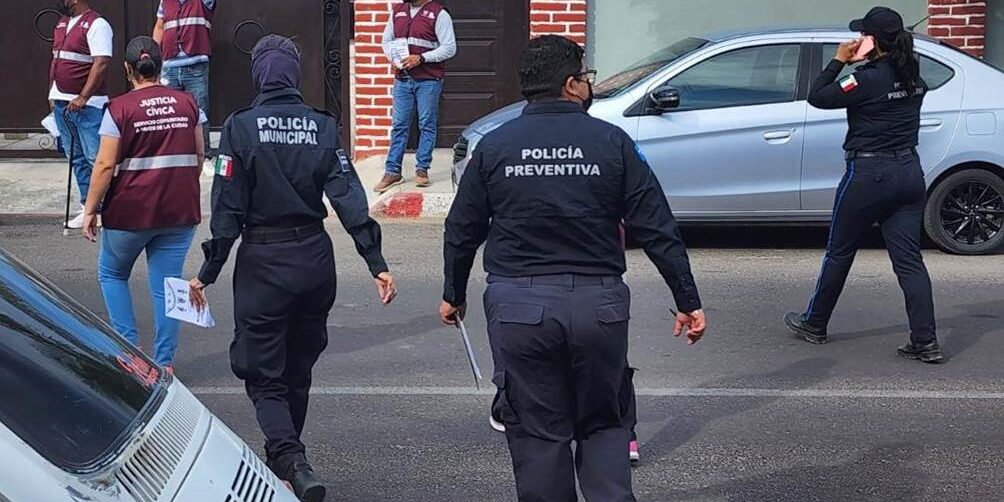
Emerging Models in Citizen Security: A Proven Approach to Crime Reduction in Mexico
June 24, 2024 | 4 Minute ReadIn Mexico, we used a two-pronged approach to support municipal police forces that can be adapted to meet the needs of other Latin American countries seeking to reduce crime and strengthen public trust in the justice system.
In 2023, over 26 million crimes were reported in Mexico, which translates to a staggering rate of 1 victim for every 4.27 inhabitants (nearly nine times the rate in the United States). Notably, 44% of these crimes were categorized as low-impact, including theft of vehicles and their accessories, home burglary, street or public transportation theft, and Although precise information on how many of these crimes are reported and handled by the responsible municipal authorities is limited, very few of the nearly 2,400 municipal preventive police forces in the country have the resources they need to fulfill their mandate. In this context, how can donors and implementing partners collaborate with local actors to reduce crime, which is an impediment to development gains.
The USAID-funded Violence Prevention and Reduction (PREVI) activity developed a two-pronged approach to its citizen security strategy. The first prong sought to address the high concentration of low-impact crime using the Problem Oriented Policing approach, which can be rapidly deployed to strengthen the capacity of community policing. The second prong is the Community and Intelligence-Based Policing Strategy for Citizen Security, which was designed to improve the trust between the public and police by increasing the perception of police work efficiency.
Prong 1: Problem Oriented Policing (POP)
PREVI initially focused on improving municipal police forces’ information generation and analysis capabilities in a short period and without significant use of resources in seven target municipalities in Mexico. Using the SARA (scan, analyze, respond, assess) methodology, the seven police forces were able to use the information generated via the analysis to design more responsive solutions which concentrated on the root causes of crime, such as lack of surveillance or insufficient lighting, and not just the aftermath. Responses were implemented in collaboration with citizens, the private sector, and other government agencies, which made the solutions more effective and sustainable.
Precincts that adopted the POP approach have already seen a significant reduction in low-impact crime. For instance, when compared to crime rates prior to PREVI’s interventions, western San Nicolas de los Garza saw a 71% reduction in business theft, while southern Saltillo saw 61% fewer home burglaries.
Prong 2: Community and Intelligence-Based Policing Strategy for Citizen Security (EPPI)
Corruption rates and links to organized crime have historically led to low levels of trust between citizens and the police in Mexico. With this in mind, EPPI focuses on increasing the perception of police work efficiency as the best way to establish or regain that trust. It creates communication channels with the public and intervenes in the internal organizational processes of information management to systematically improve how the police relate to citizens. This strengthens police operations by integrating citizen priorities into decision-making processes.
COMMUNITY AND INTELLIGENCE-BASED POLICING STRATEGY FOR CITIZEN SECURITY (EPPI)

EPPI’s design is based on organizational learning, which refers to the process whereby organizations modify their models, rules, protocols, and knowledge to improve performance. PREVI conducted 30 assessments to identify the 17 municipalities, representing six states, who were most likely to benefit from EPPI. More than 100 police personnel received training on procedural justice, emotional management, and other strategies to improve their relationship with the public. Specific activities were co-designed with local stakeholders to ensure the support was tailored to the municipality’s specific priorities, resources, and needs. Because the protocols, manuals, and databases were customized, police forces were better prepared to adapt to local elections and other political changes. This collaborative approach improved sustainability and encouraged replication of the EPPI methodology.
While it is still too early to accurately measure the impact on public perception, the intermediate results are promising. All targeted police forces have incorporated the EPPI approach into their regular police training materials. As a result of increased collaboration and knowledge sharing with the State Attorney Offices, four out of the five targeted police forces successfully implemented the new information collection and systematization systems as part of their daily activities, independently and with direct support from PREVI.
Making Legal Processes More Collaborative
Recognizing the importance of open dialogue, the EPPI process established recurring roundtables between members of the municipal police and state attorney staff. Historically, it has been challenging to generate engagement in these roundtables. However, with the progress made through the POP and EPPI approaches, complemented by hot spots policing (focusing police resources where most crime is concentrated), these targeted police forces are now better equipped to present detailed, in-demand information that incentivizes prosecutors’ offices to join the roundtables. This collaboration has allowed police and prosecutors to work together to design databases to track people with active investigation files who are detained by the police. This provides useful information to complement prosecutors’ investigation processes and protocols, and allows the two groups to jointly identify local problems that can be addressed in a targeted manner.
Despite institutional barriers and financing challenges, PREVI’s two-pronged approach offers important lessons about structuring technical assistance to improve the effectiveness of municipal police work. By providing space to encourage the adoption, practice, and internal replication of innovative, collaborative approaches, international donors and implementing partners can better respond to the significant challenges presented by citizen security and justice throughout Latin America.
Banner image caption: Police in Morelia, Mexico supervise community service work.
Posts on the blog represent the views of the authors and do not necessarily represent the views of Chemonics.









